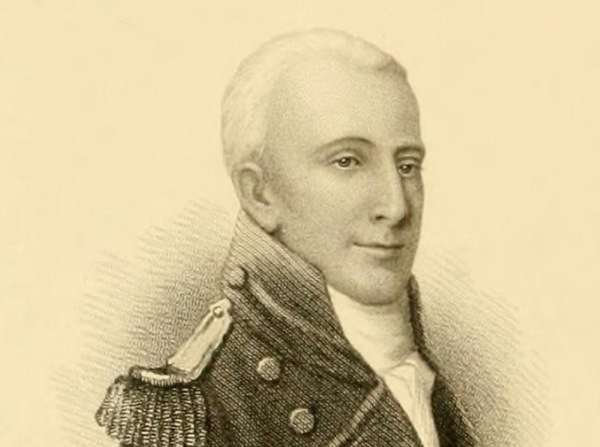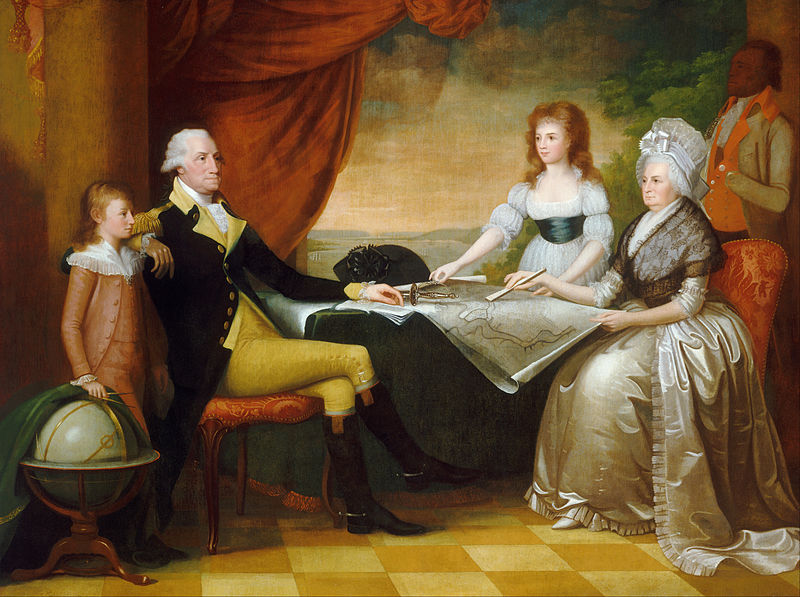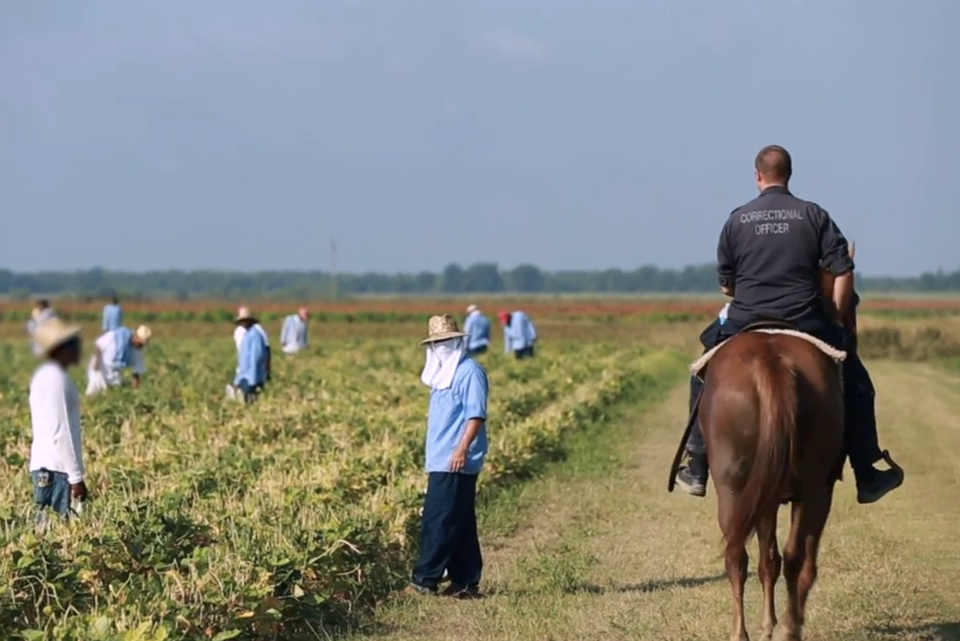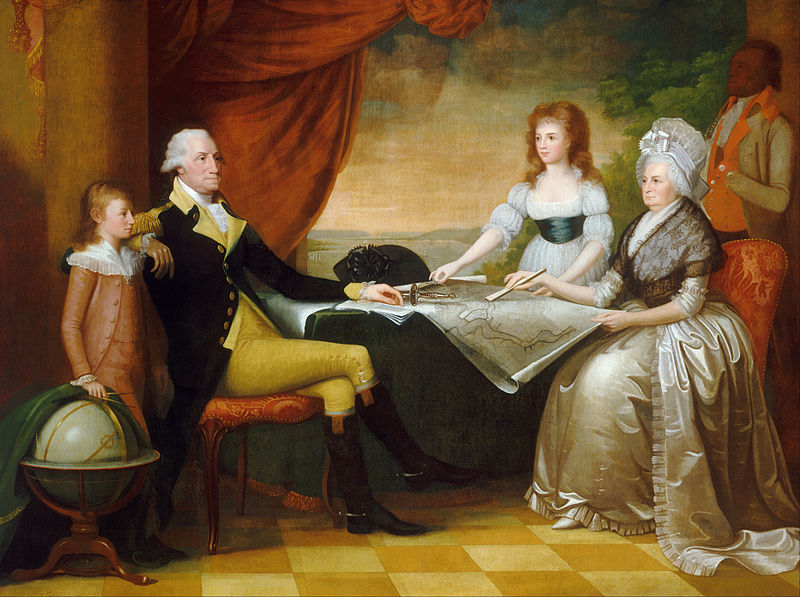Last week I shared a story about George Washington and Oney Judge, a slave who escaped to freedom.

It wasn’t a story I was familiar with… I actually hadn’t heard the story until that day, unlike the many times I’ve heard about GW chopping down cherry trees, crossing the Patomac, having wooden teeth and so on.
The response has been interesting. While many, many people had a similar response as I had (Basically, “Wow, I never heard that story before.”) there were more than a few who wrote saying they didn’t believe that had ever happened.
Which is absolutely fascinating.
Listen, President Washington was considered relatively progressive about slavery in his day. He thought gradual abolition would probably be a good thing, even though he didn’t want his own slaves freed before his death. But the fact that he planned to free them AFTER his death made him quite a bit different than others at the time. He also said he didn’t want to ever buy another slave (though he was fine keeping the children of his current slaves).
He absolutely believed freed black people would have a worse life than his slaves, who he treated well.
He definitely, purposely, illegally, circumvented the Gradual Abolition law in Philadelphia when he lived there.
All of this is so obvious in the historical record, and sometimes even mentioned in Washington’s own personal correspondence, that there’s not really a place to question it.
Human beings are complicated, it turns out. You can respect Washington the leader, the scientist, the solider, the farmer, the father of the United States and also say that he was intensely racist, a white supremacist, authoritarian, and blind to the painful effects of slavery on many of his own slaves.

In trying to put together some original sources for people who asked (some asking out of interest, or wanting to learn more, some out of skepticism or denial) I came across a letter you might find of interest. You can read it for yourself here.
President Washington wrote this letter to his personal assistant, Tobias Lear.
A few interesting quotes:
“…in case it shall be found that any of my Slaves may, or any for them shall attempt their freedom at the expiration of six months, it is my wish and desire that you would send the whole, or such part of them as Mrs. Washington may not chuse to keep, home…”
This is Washington, in his own words, saying he wants to get around the Gradual Abolition act by removing his slaves from Pennsylvania before the six months comes up (the law was considerably complicated, actually… slaves must be released immediately if the owner became a “citizen” of the state; at a certain age they were to be released (different ages for men and women); and so on) There are several letters back and forth between Washington and Lear where they are trying to figure out how exactly the law applies to Washington and his slaves and how to get around it.
…although I do not think they would be benefitted by the change, yet the idea of freedom might be too great a temptation for them to resist…

In other words, his slaves are better off as his slaves, because they will be poor and unprotected as freed people, but are safe and well cared for as his slaves. Nevertheless they may be “tempted” by the thought of freedom, and he wishes to prevent that. President and Mrs. Washington were shocked when Oney Judge ran, and honestly believed she must have been deceived, abused and stolen away. He was furious when he discovered she had left of her own free will, for he and the Mrs. had treated her “more like a daughter” than a slave. Which isn’t completely untrue… they gave her pocket money to go to plays and concerts, and gave her a good deal of freedom to go where she pleased in the city. They were planning, however, to give her as a gift to their granddaughter, which Oney could not imagine. It’s interesting, though, isn’t it, how easily the thought “they’re better off this way” comes in a situation like this one?
“At any rate it might, if they conceived they had a right to it, make them insolent in a State of Slavery.”

If they realized they could be free or “had a right” to be free, they might become “insolent.” So let’s make sure they don’t get that idea in their heads. The enormous irony of this from a man who was such an integral part of a revolution started, in part, because of a desire for freedom from “taxation without representation” is staggering.
“…it behoves me to prevent the emancipation of them, otherwise I shall not only loose the use of them, but may have them to pay for.”
Not to get too far into the technicalities here, but some of the slaves in the Washington household were “dower” slaves… Martha’s slaves given as, essentially, a wedding gift. They belonged to Martha, but different rules applied because they belonged to her family as well (not to the Washington family). If they were released, George Washington could be held financially liable to pay back their cost to Martha’s family.

This is such a good example of how often financial concerns are what really bar us from making decisions that are just. Many of the injustices in our world today are propped up and perpetuated because of finances. The prison industrial complex requires us to over-populate our prisons, so we do. They need younger inmates (they cost less to care for because of fewer medical needs), so lobbyists convince politicians to change the laws so our police forces arrest and our system of law convicts younger people for lesser offenses. Various companies need cheaper labor, so they contract with prisons for forced labor. It’s all about money. Is racism involved? Yes. Absolutely. But it’s money and power leading the way. That’s just a small example. The sex industry, porn, human trafficking, modern day slavery, the drug trade on and on, these things exist and sometimes are allowed to continue to exist because of the money. Corporations getting preferential treatment over individuals. Some of our current voting laws. Money is at the heart of it.
“If upon taking good advise it is found expedient to send them back to Virginia, I wish to have it accomplished under pretext that may deceive both them and the Public;”
In other words, Washington didn’t want anyone to know he was circumventing the law here. No doubt there are many reasons for this, some political, some personal. He goes on to say that he wants to keep the plan between himself, Mrs. Washington and Tobias Lear.
Note at the end of the letter, Washington mentions Oney by name as one who he thinks is not at risk of being freed because of her age (he misunderstood the law, as it turns out, and she was indeed covered by the Gradual Abolition law).
George Washington was a hero in the history of the United States. He was also racist, and a slave owner. Both things are true. It’s a good thing for us to embrace these facts, and understand our history. Looking away from the racism of the past can only lead to us turning a blind eye to the racism of the present….
I’d love to hear your thoughts.

